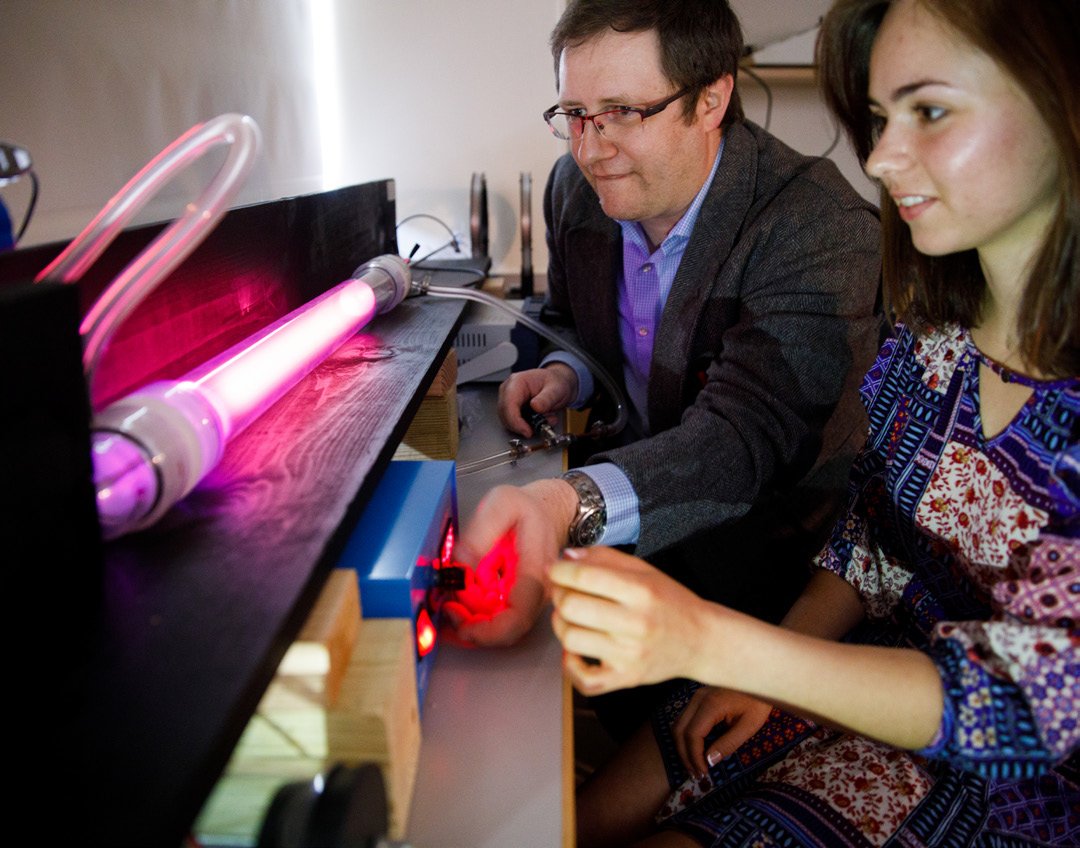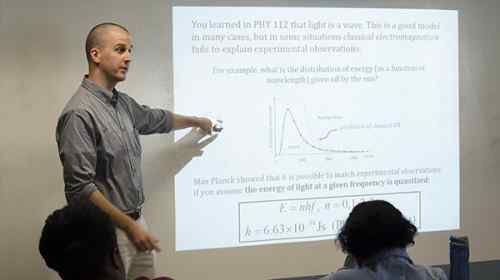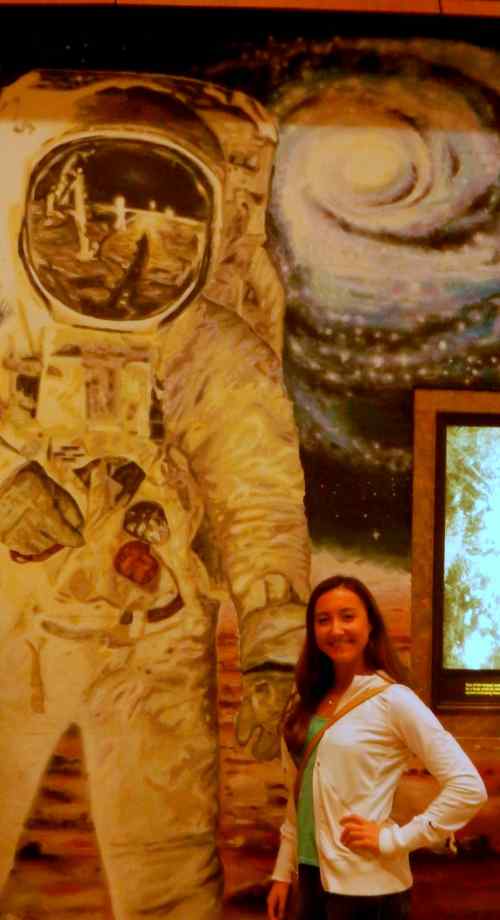
Physics
Discover the basic patterns of nature.
Physics is the most fundamental of sciences. Physicists seek to discover the laws that govern the behavior of material objects and waves, and the interactions between particles. Application of these universal laws to systems ranging from atoms and molecules to clusters of galaxies gives rise to challenging problems whose solutions require creative insight alongside logical rigor and mathematical reasoning.
The study of physics helps students to understand the scientific method and its implications— how to make rational inferences from data and how to test hypotheses critically. It also leads to an appreciation of the aesthetic dimensions of a scientist’s work and the interrelationship of physics with other areas of knowledge and its technological applications. This aspect is particularly emphasized in courses intended for distribution.
We have a vibrant department with faculty interests in plasma physics, computational physics, space and planetary science, mass spectrometry, theoretical physics, optics, and engineering.
Programs
The Department offers a Bachelor of Science in Physics and a Minor in Physics. Washington College’s Combined Plan Program with Columbia University allows students to obtain dual degrees in Physics and Engineering, with the opportunity to specialize in more than ten different engineering fields. Courses in subjects ranging from classical dynamics to electronics to quantum theory prepare students for careers in physics, engineering and entry into graduate school.
Liberal Learning
Studying physics at a liberal arts college can offer distinct advantages over programs at larger institutions. Our students receive rigorous training in theoretical physics, laboratory physics and mathematics while developing the broad habits of analytic thought, clear oral and written communication, aesthetic insight, ethical sensitivity and civic responsibility that are intrinsic to the Washington College Liberal Education.
Our Alumni
Our alumni have experienced high degrees of career success in both science and non-science fields. Many obtain advanced degrees in physics or engineering, while other alumni are employed in other areas, including computer and technology fields, education, law and business. Some of our recent alumni are pursuing careers in such diverse fields as theoretical physics, astronomy, nuclear engineering, computer engineering, computer science, material science, medical physics, chemical physics, automation engineering and fire protection engineering.
Department Tour























